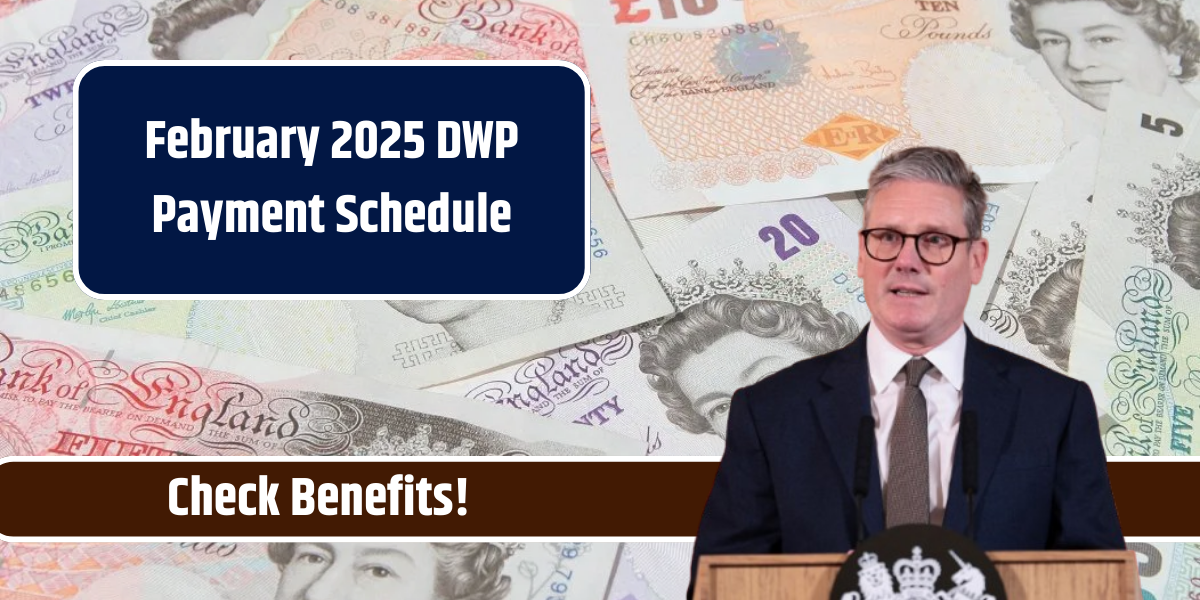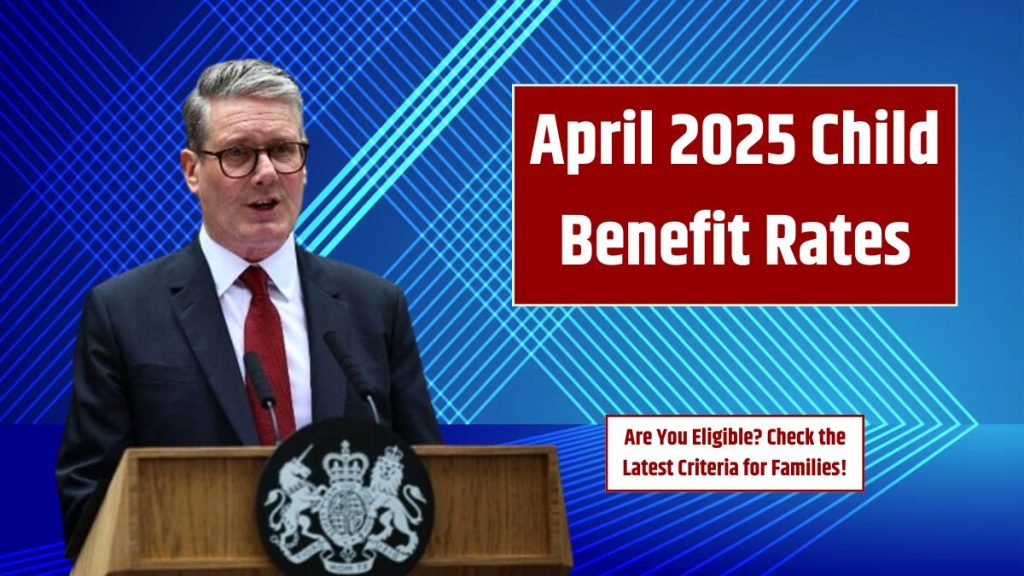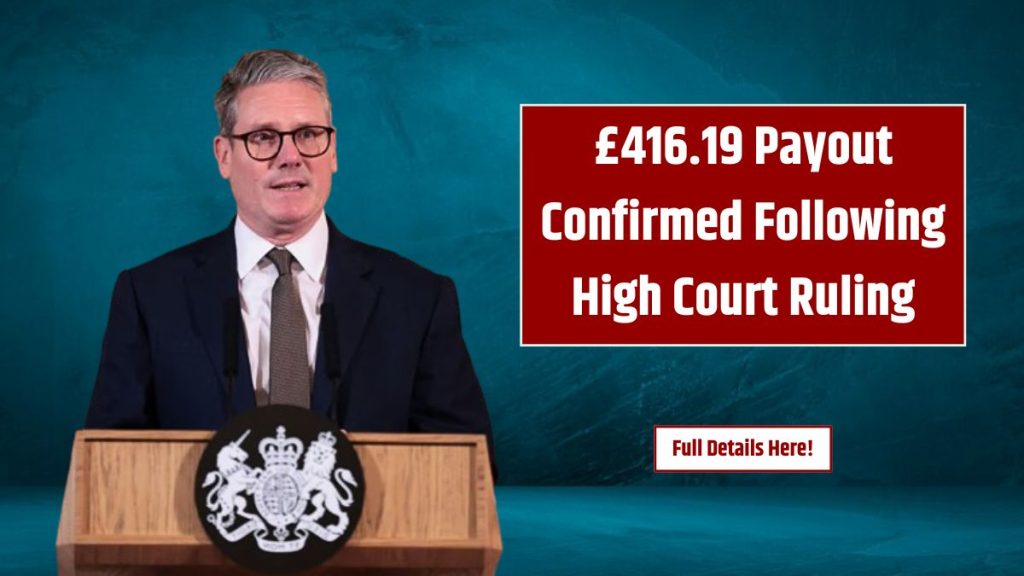Managing household finances remains a priority for many UK residents as the cost of living continues to rise in 2025. With increased grocery prices, higher mortgage rates, and growing energy bills, government-provided financial support plays a crucial role. Here’s a detailed overview of the February 2025 Department for Work and Pensions (DWP) payment schedule, updates on welfare schemes, and additional support available to help individuals and families navigate financial challenges.
February 2025 DWP Payment Schedule
February 2025 welfare and benefit payments will be processed without interruptions as there are no bank holidays during the month. Payments include:
- Universal Credit
- State Pension
- Pension Credit
- Child Benefit
- Disability Living Allowance (DLA)
- Personal Independence Payment (PIP)
- Attendance Allowance
- Carer’s Allowance
- Employment Support Allowance (ESA)
- Income Support
- Jobseeker’s Allowance (JSA)
Universal Credit Migration Update
The DWP continues its transition from legacy benefits to Universal Credit, targeting completion by January 2026. Notices for migration have been sent to individuals on tax credits, income support, Jobseeker’s Allowance, and housing benefits. Those receiving Employment Support Allowance (without tax credits) and housing benefits will receive migration notices by December 2025. This phased rollout aims to streamline benefit distribution under one system.
Household Support Fund (HSF)
The Household Support Fund offers financial assistance to vulnerable households for essential expenses like food, utilities, and clothing. Managed by local councils, support may include:
- Cash grants
- Supermarket vouchers
- Energy bill assistance
The scheme has been extended until March 2025, ensuring continued support. Eligibility and distribution methods vary by council, so check your local council’s website for specific details.
Additional Financial Support Options
1. Budgeting Advance Loans (Universal Credit Claimants)
Universal Credit recipients can access interest-free Budgeting Advance Loans for urgent financial needs. Loan amounts depend on household status:
| Household Type | Maximum Loan Amount |
|---|---|
| Single | £348 |
| Couple | £464 |
| With Children | £812 |
From April 2025, repayment deductions from Universal Credit will be reduced from 25% to 15%, easing financial pressure.
2. Charitable Grants
Charities provide financial aid for individuals in hardship, including:
- Disabled individuals
- Carers
- Unemployed people
- Students
Turn2us offers an online search tool to locate available grants.
3. Energy Bill Support
Energy providers offer tailored support for customers struggling with rising bills. Programs include:
- Direct financial help from Scottish Power, EDF, E.ON, and Octopus
- Grants of up to £2,000 through the British Gas Energy Trust (available to customers of any provider)
Visit your energy provider’s website or the British Gas Energy Trust for application details.
4. Council Tax Reduction
Low-income households or benefit recipients may qualify for a council tax discount of up to 100%. Those experiencing severe financial hardship can apply for a discretionary reduction through their local council.
5. Warm Home Discount
This one-time £150 discount on electricity bills applies automatically to:
- Low-income households with high energy costs
- Recipients of the guarantee credit element of Pension Credit
6. Free Childcare Expansion
By September 2025, all children under five will qualify for 30 hours of free childcare per week. The rollout schedule includes:
- April 2024: 15 hours for 2-year-olds
- September 2024: 15 hours for children aged 9 months and older
- September 2025: 30 hours for all children under five
Parents must apply online and reconfirm eligibility every three months.
Benefit and Pension Rate Increases in 2025
In April 2025, working-age benefits will increase by 1.7%, reflecting the September 2024 inflation rate. Affected benefits include:
- Universal Credit
- Personal Independence Payment (PIP), DLA, Attendance Allowance
- Carer’s Allowance
- Employment Support Allowance
The State Pension will see a 4.1% increase under the triple lock system, equating to an extra £472 annually.
Energy Price Cap Update
Ofgem’s energy price cap for January–March 2025 rose to £1,738, limiting per-unit charges by energy suppliers. While this cap provides some relief, actual bills depend on household usage. Energy prices are projected to increase by an additional 3-5% in April 2025, following a 10% spike in October 2024. Government and energy-provider schemes can help mitigate these costs.
As economic uncertainties persist, understanding the available financial resources is vital. From benefit increases and council tax discounts to energy bill assistance and free childcare, these measures can help ease financial burdens. If you’re struggling, explore local government and charity resources to identify the support available in your area.
When will the next benefit increase occur?
Benefit rates will increase in April 2025 by 1.7%, in line with inflation.
How do I apply for a council tax reduction?
Visit your local council’s website or the UK government portal to submit an application.
What is the new energy price cap?
Ofgem’s energy price cap for January–March 2025 is £1,738, with a projected 3-5% increase in April.










